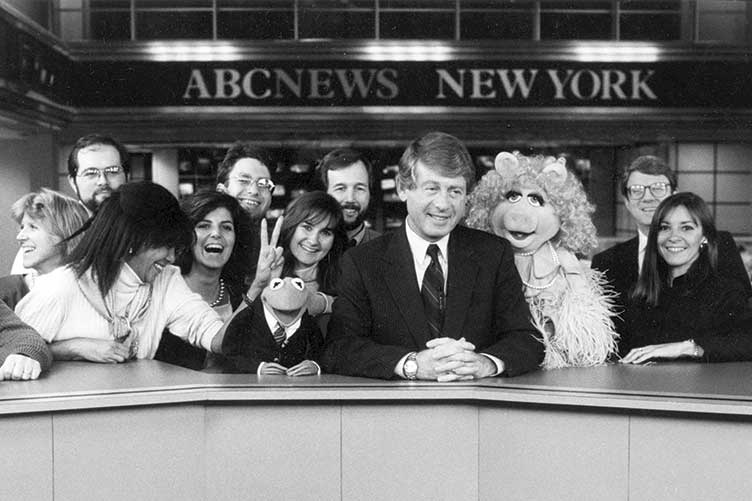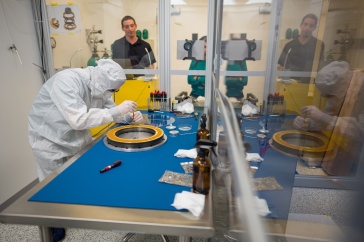
Full disclosure: I flunked Italian my senior year. This was galling, particularly to my Italian parents. Thinking the class would be an easy A, I'd spent my mornings hosting a news broadcast on WUNH invece di frequentare il corso di italiano (instead of going to class—I've learned a little since). No class, no pass. And no more tuition money in the parental coffers.
I was the first in my family to go to college. The humiliating prospect of not graduating, to say nothing of the fear of having to move back in with my parents, sent me into despair. To my parents' generation, success meant a steady job, preferably one with benefits. My mother suggested I work with her at the telephone company.
The thought of eating lunch with mom in the Ma Bell cafeteria stiffened my resolve to find my own path. Though I may have skipped a class or two, I had written for The New Hampshire, Channel 11, and WUNH radio, so Bill Simms, a wonderful professor and adviser, took pity and arranged for me to make up my final credits with an internship at the White House. The White House! My first question was, could I wear work boots? I didn't even own real shoes.
Leaving behind the wreckage in my Young Drive duplex, I started my internship in Washington. My job was to condense newspaper and television news stories into a tidy document and deliver the binder to the Secret Service office to be read the following day (this was the 1970s) by the President of the United States. No one was more shocked than I when, at the end of my two-month internship, I was offered a job as an editor of the White House news summary.
With my first paycheck I bought my parents a microwave, a symbol to them—and to me—that their daughter was on her way. Which made it all the more unfortunate when, on the first night editing the summary on my own, I made a whopper of a mistake. While writing a few paragraphs on the topic of the day, organic farming, I mistakenly wrote orgasmic farming throughout.

President Ford's White House
The next day my boss flung the binder across the room, knocking my UNH mug to the floor. In red ink, President Ford had circled all the "orgasmics" (I recall there were seven) and had scribbled in the margin, "What were you girls thinking last night?" I could have died; it would have been less painful.
But I lived to work another day, and before I knew it I'd plunged into a full-throttle career that raced from the U.S. Senate to network television, through national magazines and book publishing and back to TV. Each job was demanding and came with a steep learning curve. Each was exactly right for me at the moment. I didn't worry about where it was all leading; I just immersed myself in each step until the next opportunity came along.
Though I didn't realize it for years, I was mapping out a life in segments. When you're young, moving around is not only expected but lauded. As you grow older and more established in a career, change starts feeling like a risk that might damage your hard-won reputation. The truth is, though, that few of us live anymore in the world my parents wanted for me, the one where you scale a single corporate ladder, get your 30-year appreciation plaque, and sit back to count the days till retirement. Especially for women, the corporate stepladder has fragmented into a series of movable stepstools whose varying heights can accommodate choice, desire, or necessity—in other words, life.
Those stepstools, along with the necessary change in mindset, became my path to sanity. But the story could easily have gone another way. When I was a producer for ABC's "Nightline," I was having a rare leisurely lunch one day with my then-boyfriend. We agreed to go to the theater the next night; expensive tickets were purchased. But, as often happened, news trumped the date and I hastily left to cover a story in the Philippines.
I landed in Manila only to receive an urgent message: My boyfriend was frantic that I had not shown up at the theater. I'd completely forgotten to tell him I was leaving. I returned six weeks later having covered a hijacking in Pakistan, the release of Benazir Bhutto from prison, and who knows what in Hong Kong. I'd loved every second and didn't stop for one moment to mourn a lost relationship.
There were other tales too embarrassing to mention. I loved my kick-ass job. The pace was dizzying; the adrenaline was rocket fuel. We were the TV girls covering stories around the world and creating an award-winning broadcast. Work was my life. For me, that was the very definition of success.
Then one night at a party, a powerful, older, unmarried woman was listening as I rattled off my recent wins: the big "gets," the promotion, my upcoming blah, blah, blah. Boy, I was amazing, right? Her response hit me like a tub of ice. "Don't make the same mistake I did," she cautioned, finger wagging. "Your job is more interesting than any man could ever be." She was flagging the trap that lay right in front of me, the one I'd failed to see: I was unintentionally married to my work.
Lodged in the back of my mind had always been a passage from Sylvia Plath's The Bell Jar, the book that rocked my world in high school. Lamenting her fear of choosing one path over another, Plath wrote, "I saw myself sitting in the crotch of this fig tree, starving to death, just because I couldn't make up my mind which of the figs I would choose. I wanted each and every one of them, but choosing one meant losing all the rest."

included a stint as an associate producer at “Good
Morning America,” where she worked with David
Hartman (L) and Steve Bell (R). As a “Nightline”
producer in 1981, she secured the first prison interview
with Sirhan Sirhan, convicted of assassinating Robert
Kennedy in 1968.
I was paralyzed by the thought of having to choose. Life was a tree filled with professional and personal possibilities. I never wanted just one. But now it seemed that not choosing had closed off one avenue.
Luckily, I soon met a wonderful man who was more interesting than my job. Wary of marrying a stressed-out crazy person, he said, "Do what you want to do, but I can't fit in that world." I was done with crazy anyway. Having already tested the bounds of child-bearing to their limit, I traded my leather "ready bag"—which all producers kept packed and handy for speedy getaways—for a plastic sack filled with diapers and spit-up rags. When I moved my stepstool away from the intense producer world I had ferociously pursued, to my amazement, something wonderful happened: I discovered a kind of success that looked far different from the one I'd left behind.
Thankfully, our financial situation allowed me to become a full-time mom with a part-time job—which didn't mean I worked less, just more on my own terms. Watching from the sidelines as my friends secured those top jobs I'd once coveted, the ones with demands and accolades as big as their paychecks, my aha moment was realizing that I was O.K. I worked at home as an editor for Vanity Fair and The New Yorker, sometimes in my pajamas, while my children built sheet forts under my desk. For my life right then, flexibility was more valuable than any expense account. I redefined success in the shape of reading copy in the carpool line.
Once rid of the shackles of other people's definitions, I was free to pursue what worked for me and my family. In various segments of my life, that has meant clinging to the flexibility of a part-time job or, once the kids were out of the house, throwing myself into the challenges of a large company. Once I gave myself permission to design my own career trajectory, I found the stepstools that worked for me. I found value in something other than a title.
The itch to change does not mean you're fickle; it's a necessary recalibration. By stopping now and then to redefine what success means, we can experiment with the cocktail that is our lives and know that, in different segments, the percentages of charge-ahead and hang-back will vary. For me, re-evaluating success seems to happen about once a decade. Sometimes it requires a small tune-up, other times a total gut job.
I know how lucky I am to have the luxury of making these decisions. Not everyone can afford to do that—and even those who can, often don't. I live in a city where running as fast as you can, because that's what we're programmed to do, is an Olympic sport. Every day I see powerful, successful women who have financial and personal choices but don't act on them. The prospect of having no answer to the question "What do you do?" simply unnerves them.
In an episode of the TV series "The Good Wife," the main character, Alicia Florrick, answers the question "What do you want?" this way: "I want a happy life. And I want to control my fate." With four decades of a career under my Spanx, I continue to reimagine what success will look like in the next decade. While I don't know what's coming, I'd bet a bushel of figs it won't look like the decades past.
—Susan Mercandetti '75
Read a Q&A with Susan Mercandetti '75
Originally published by:
UNH Magazine, Spring 2014 Issue
















































